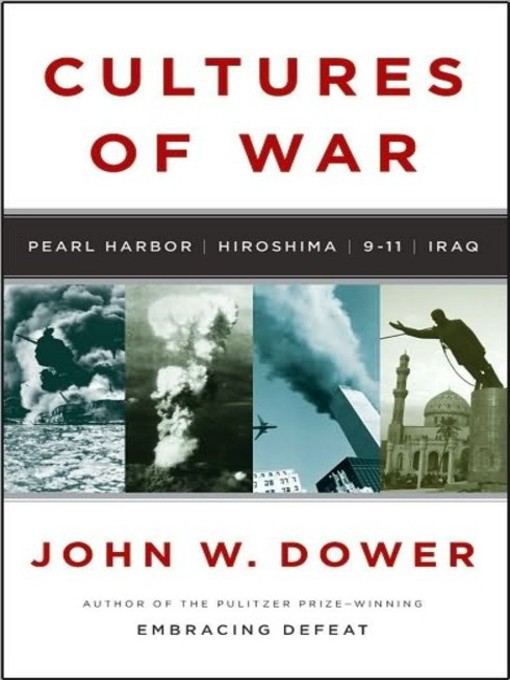Turning to an even larger canvas, Dower now examines the cultures of war revealed by four powerful events—Pearl Harbor, Hiroshima, 9-11, and the invasion of Iraq in the name of a war on terror. The list of issues examined and themes explored is wide-ranging: failures of intelligence and imagination, wars of choice and "strategic imbecilities," faith-based secular thinking as well as more overtly holy wars, the targeting of noncombatants, and the almost irresistible logic—and allure—of mass destruction. Dower's new work also sets the U.S. occupations of Japan and Iraq side by side in strikingly original ways.
One of the most important books of this decade, Cultures of War offers comparative insights into individual and institutional behavior and pathologies that transcend "cultures" in the more traditional sense and that ultimately go beyond war-making alone.
-
Creators
-
Publisher
-
Awards
-
Release date
September 22, 2010 -
Formats
-
OverDrive Listen audiobook
- ISBN: 9781400199587
- File size: 510811 KB
- Duration: 17:44:11
-
-
Languages
- English
-
Reviews
-
AudioFile Magazine
Dower provides a scholarly but lively--and sometimes acerbic--examination of governments (and others) making war by choice and using force to try to cow an enemy, examining Pearl Harbor, WWII terror bombing, Hiroshima, 9/11, and the U.S. invasion of Iraq. Kevin Foley's voice is strong but not particularly personable, though his reading is precise and well paced and his inflections make meanings clear. The result is a flat voice that occasionally and unexpectedly achieves emotional expressiveness. But over the long haul--and the book is long--repetitiveness in his modulations gives the impression of droning on. Relatively few, but prominent, mispronunciations are jarring. While this is not a poor reading, this important book deserves better. W.M. (c) AudioFile 2010, Portland, Maine -
Publisher's Weekly
Starred review from October 11, 2010
In this fascinating study, Pulitzer prize-wining historian Dower (Embracing Defeat) draws parallels between the illusion-ridden Japanese top leadership prior to December 7, 1941 and the fecklessness and over-confidence of the Bush Administration after September 11, 2001. The author compares the post-war occupations as well, stating that “Wishful thinking trumped rational analysis in Tokyo in 1941 and Washington in the run-up to war with Iraq.” Exploring “the similar rationales and rhetoric of Japan's war of choice in 1941 and America's in 2003,” he looks at the way in which emotion-laden terms like “Pearl Harbor” and “ground zero” have been co-opted for the War against Terror. And similarly mistaken, in Dower's view, were the beliefs of both commands in the efficacy of bombings targeting civilian populations. Equally telling is his comparison between the occupation of Japan (and to a lesser extent, Germany) and the occupation of Iraq. After Japan's surrender, the U.S. military formulated a set of pre-determined goals based upon New Deal principles that laid the groundwork for Japan's extraordinary economic recovery. In Dower's view, the U.S. not only abdicated responsibility for the Iraqi occupation, but ignored the potential of the sectarian divisions that have erupted there.
-
Loading
Why is availability limited?
×Availability can change throughout the month based on the library's budget. You can still place a hold on the title, and your hold will be automatically filled as soon as the title is available again.
The Kindle Book format for this title is not supported on:
×Read-along ebook
×The OverDrive Read format of this ebook has professional narration that plays while you read in your browser. Learn more here.


